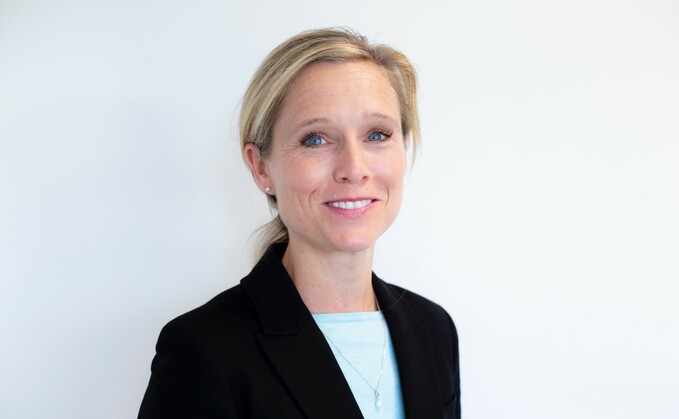
Dr Katie Tryon, director of health strategy for Vitality
A recent report looking into Vitality's PMI claims data revealed how promoting healthier lifestyles is actively changing people's behaviour for the better, ultimately bringing down healthcare costs.
Knowing this creates a significant opportunity for health insurers to prioritise prevention in ways that can make society healthier.
It's no secret, however, that making healthy choices can be difficult. And this is what makes Vitality's claims experience so eye-opening. It's not just about highlighting the benefits of healthy lifestyles. With the right nudges and incentives, behaviour change can be sustained over time, and this is reducing health risk among its members.
"It really takes a complex combination of nudges and incentives to truly bring about sustained behaviour change," Dr Katie Tryon, director of health strategy, Vitality
Value from lower healthcare costs is then being returned to clients in the form of richer rewards and additional value through access to partners[1], keeping the virtuous cycle going - as happier, healthier members are less likely to claim or be a burden on the NHS. Everyone wins. We caught up with Dr Katie Tryon, director of health strategy for Vitality, to hear more.
What role can health insurance play when it comes to prevention?
"Health insurance has a significant role to play when it comes to prevention. Nearly 50% of the health burden in the UK is preventable and actually nearly 90% of that is to do with lifestyle choices alone, such as increasing physical activity and improving nutrition[2]. Alongside this, a recent study by Public Health England showed that seven in 10 adults were motivated to get healthier due to the pandemic and 80% had actively decided to make changes to their lifestyle[3]. Health insurers are brilliantly placed to help with this. On one hand, you've got adults ready and willing to make better lifestyle choices. On the other, insurance companies will benefit from having a healthier population in terms of healthcare spend. And if you provide people with the tools and facilities that they need to make health improvements, you end up with a healthier society."
How does promoting better lifestyle choices help?
"Our data shows that promoting better lifestyle choices improves health, fundamentally. From VitalityHealth claims data between 2017 and 2021, we've seen those who are significantly engaged with our structured rewards programme - the Vitality Programme - incur significantly lower healthcare costs[4]. Over 30% less in the case of musculoskeletal, oncology and cardiovascular disease. Data from our parent company Discovery has also shown those who were more physically active before being diagnosed with breast cancer or prostate cancer have nearly 50% better chance of survival[5]. Changing our lifestyle really can improve our health and as a result reduces the healthcare burden."
Is raising awareness alone enough to bring about sustained behaviour change?
"Sustained behaviour change is hard. We've known that for many, many years. It really takes a complex combination of nudges and incentives to truly bring about sustained behaviour change. We've seen within the Vitality Programme that Active Rewards - or weekly rewards - make a significant difference in terms of people's physical activity. We've seen members who engage with our Waitrose Healthy Foods benefit increase their healthy food spend by 65%[6]. Also interesting is that our Apple Watch benefit, framed as a loss incentive (if members don't engage, they lose the benefit), has been particularly powerful, with over 30% more engagement than other Active Rewards[7]. It's through nudges and incentives such as these that we're able to help sustain behaviour change over long periods of time."
How have physical activity trends changed in recent years?
"In recent years, we've actually seen an incredible level of physical activity across the Vitality Programme being maintained - despite all the social restrictions that we've lived through during that period. In 2021 alone, we recorded 57 million physical activity events. But what we have seen is a change in the way people do physical activity. Over that period, we saw a 50% increase in cardio events being recorded and a lot of that change has been maintained despite gyms opening after lockdowns[8]. Even though the pandemic has transformed the way many people workout, they are still doing it at the same level."
How significant do lifestyle changes need to be to make an impact?
"Recent evidence suggests that just making small changes can have an enormously significant impact on an individual's health[9]. For someone who is not moving much to start doing a small number of extra steps each day, quality of health can really be improved. I think this is a really important thing to bear in mind, particularly when we think about what we've been through during the pandemic. A lot of people became far more sedentary than they were before lockdown, and we've seen an unfortunate increase in musculoskeletal issues associated with working from home as a result. So, I think the most important message is just get started. Even a little can make a big difference."
At COVER Health Insurance Uncovered, COVER editor John Brazier sat down with VitalityHealth managing director Dr Keith Klintworth to investigate Prevention 2.0, a concept which incorporates clinical risk factors as well as healthy lifestyle choices through PMI. Watch the video below.
Read the Vitality Health Claims Insights Report here.
[1] When members engage in healthier behaviours, they benefit from improved health, tangible value through Vitality's incentives and rewards, as well as lower premiums (through ABC pricing) and better benefits (Premier Consultant Cashback, status-linked excess and employer cashback).
[2] Global Burden of Disease database; Williamson, E., Walker, A. J., Bhaskaran, K. J., Bacon, S., Bates, C., Morton, C. E., ... & Cockburn, J. (2020).
[3] Better Health Campaign, Public Health England, 2021.
[4] Vitality Health Claims Insights Report 2022
[5] Breast cancer survivors who had high levels of physical activity had 48% more chance of survival seven years following diagnosis over a seven-year mortality rate. Those diagnosed with prostate cancer had 53% better odds if they were more active over the same period, Vitality Health Claims Insights Report 2022
[6] Waitrose data December 2020
[7] Incentives and physical activity: An assessment of the association between Vitality's Active Rewards with Apple Watch benefit and sustained physical activity improvements. Vitality and RAND Europe, 2018.
[8] Vitality Health Claims Insights 2022
[9] Studies reports new findings on how many daily walking steps needed for longevity benefit, University of Massachusetts, March, 2022











